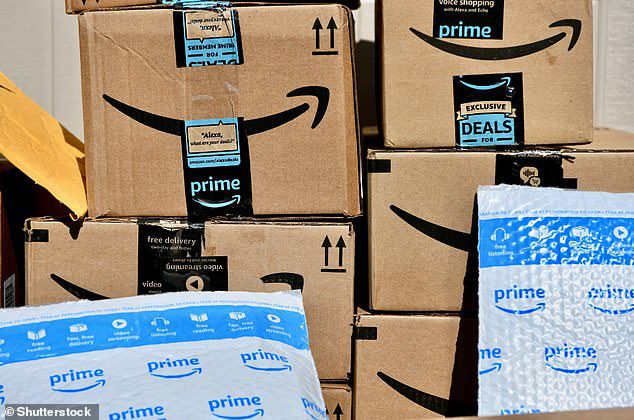In a powerful display of support in the fight against plastic pollution, 48.9% of shareholders of Amazon.com supported an As You Sow shareholder resolution at the company’s annual meeting last week. The resolution asked the world’s largest online retailer to disclose how much plastic packaging it uses and report on ways it can significantly reduce the overall use of plastic for packaging.
More than 181 million shares with a market value exceeding $387 billion supported the proposal, providing the highest level of support among 15 shareholder proposals on social and environmental issues on this year’s Amazon proxy statement. When management and insider shares are discounted, the proposal was approved by an estimated 59% of non-company related shares.
Amazon’s substantial and growing use of plastic packaging exposes the company to increased financial and reputational risk from millions of tons of plastic that end up in oceans and the environment, the proposal states, and the company lags its peers on disclosure and commitment to reducing plastic used for packaging.
At the heart of the plastic pollution problem are single-use plastics like those generated by Amazon packaging, which makes up the largest component of ocean-bound plastic pollution. Amazon has not disclosed how much plastic it uses, but is believed to be one of the largest corporate users of flexible plastic packaging with heavy use of plastic e-commerce mailers, which are generally not recycled.
A recent report by the non-profit group Oceana estimated that Amazon generated 599 million pounds of e-commerce plastic packaging in 2020. The company says the report overestimated its plastics use but has declined to disclose its actual e-commerce plastic usage or the amount of plastic used in its 400+ private-label brand operations.
“This vote supported by a majority of non-management shareholders confirms that a wide range of mainstream investors are challenging Amazon to elevate the issue of plastic pollution and develop credible solutions to the global plastic pollution crisis now,” said Conrad MacKerron, senior vice president at As You Sow. “Amazon should respond swiftly to the clear signal sent by shareholders by disclosing how much plastic it uses and devising a plan to significantly reduce its reliance on single-use plastic packaging such as its ubiquitous blue and white plastic bubble mailers.”
“Breaking the Plastic Wave,” a recent comprehensive report from Pew Charitable Trusts calls on consumer goods companies to cut plastic demand by one-third through elimination, reuse, refill, and new delivery systems — one of eight simultaneous interventions required to reduce ocean plastic deposition 80% by 2040. The company lags retailing peers like Target Corp. and Walmart who have disclosed the amount of plastic they use and made public commitments to As You Sow to reduce the use of virgin plastic for packaging by 2025.
An estimated 11 million metric tons of plastics leak into oceans annually and this figure is expected to grow to 24 million metric tons by 2040 unless a range of drastic remedial actions are taken. Plastic particles are permeating our air, food, and water. Ocean plastic pollution causes fatalities in more than 800 marine species from ingestion, entanglement, suffocation, or drowning. The scientific community has warned that plastic pollution may be nearing an irreversible tipping point. The plastic lifecycle imposes costs on the environment, climate, and human health that are at least 10 times higher than the market price of plastics.
Help keep news FREE for our readers
Supporting your local community newspaper/online news outlet is crucial now more than ever. If you believe in independent journalism, then consider making a valuable contribution by making a one-time or monthly donation. We operate in rural areas where providing unbiased news can be challenging. Read More About Supporting The West Wales Chronicle

























